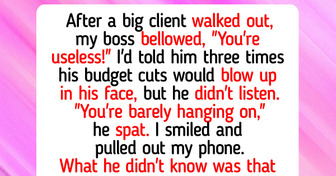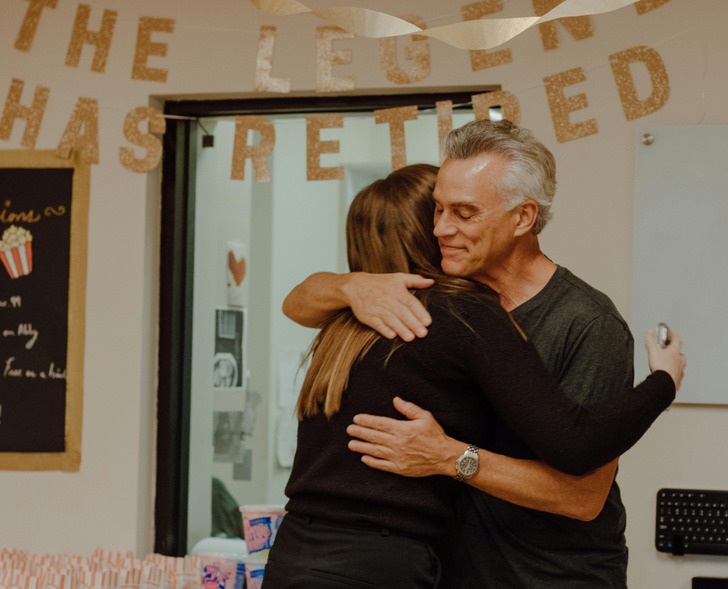People love to criticize gen x (and often their children gen z) that we are "slackers", but my generation learned young that people are expendable, companies have no loyalty as we saw workers cut loose but the uppers got golden parachutes. I never sold my soul to the company store, just like they didn't do the same for me. I found happiness in my family and other personal endeavors and work was just work. I retired recently and don't miss it at all.
I Thought My Retirement Party Meant Something Until I Overheard the Truth
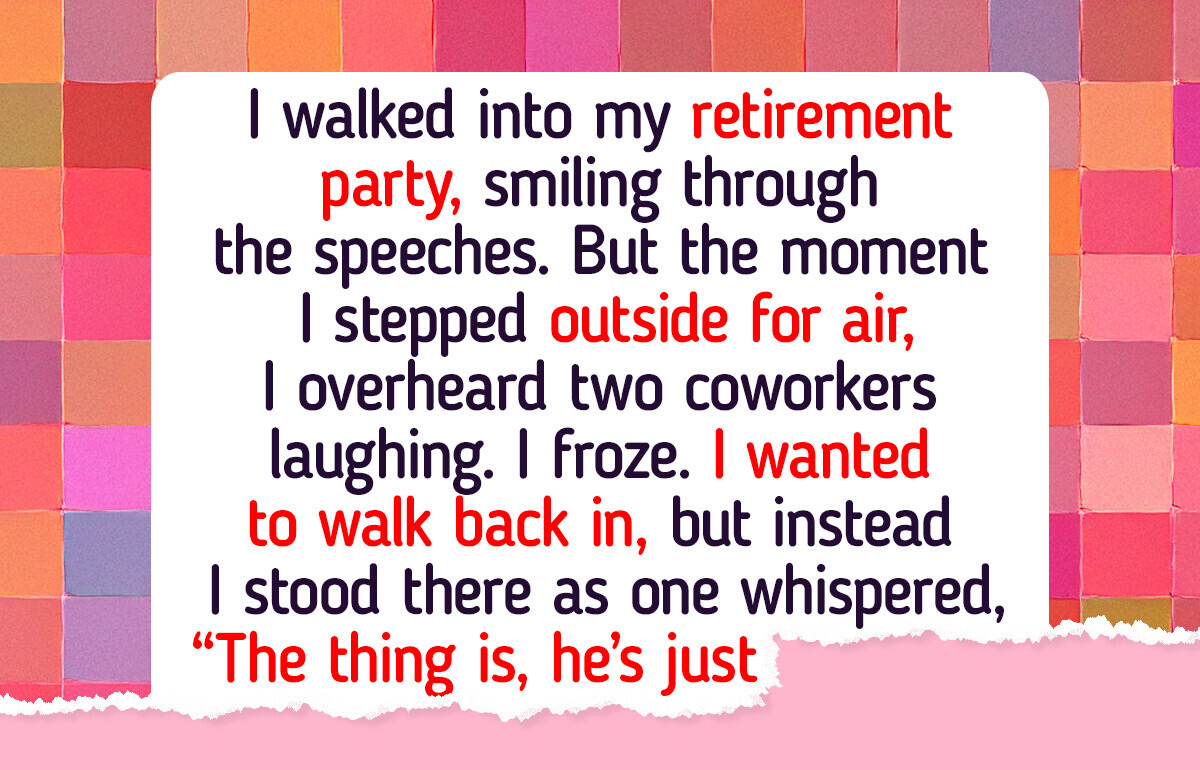
Retirement is often painted as a golden reward, endless free time, relaxation, and freedom. But for many, it also brings unexpected feelings of loss, identity shifts, and uncertainty. Letting go of a long-held role isn’t easy. What comes next? And how do we move forward when the applause fades into silence?
After decades of dedication, Martin’s retirement party ended with a painful realization: the world moves on, often faster than we expect. In this heartfelt letter, he shares his experience, and in response, we offer gentle, practical advice on how to rediscover purpose, joy, and identity in this new chapter of life.
Dear Brightside,
Last Friday marked the end of an era for me—I had my retirement party after 38 years at the same company. It was everything I hoped it would be. There were smiles, toasts, even a slide show of my early days complete with questionable hairstyles and outdated suits. My colleagues clapped, my boss gave a kind speech, and I felt like I was leaving behind something meaningful.
But then, as the evening wore on and people got more relaxed, I went to retrieve my coat from the breakroom and overheard two younger employees talking. They didn’t know I was nearby.
One of them laughed and said, “Can you believe he actually thinks he mattered that much? We’re already redistributing his tasks. It’s like he was never even here.”
The other replied, “Yeah, 38 years and he gets a cake and a spreadsheet full of transition notes. I’d go crazy if I thought that was my future.”
They laughed again, and I just stood there, frozen. I wasn’t angry. I was... hollow. Like someone had popped the balloon I didn’t know I was holding.
I didn’t confront them. I didn’t even walk in. I waited until they left, grabbed my coat, and quietly slipped out.
That moment replayed in my mind all weekend. Not because they were cruel, exactly—they were just young. They haven’t yet learned that one day, they too will hope their efforts mattered. That they’ll leave fingerprints behind, even if invisible to others.
It hurt, but it also woke me up. The truth is, they’re right in a way. The world does move on. The workplace doesn’t pause because you gave it your best. You’re remembered for a moment, then replaced like a puzzle piece. That used to terrify me. But now I think it might be freeing.
You see, I’ve been clinging to the idea that my job was my identity. I missed birthdays, anniversaries, vacations, all in the name of being dependable, indispensable. And yet, here I am, dispensable after all.
So I’ve decided not to be bitter. I want to move on, not with resentment, but with purpose.
But here’s the problem: I don’t know how.
I’m 65. I have time, health, and enough savings. But I feel like a boat cut loose from its dock, with no compass in sight. What do I do now, when no one needs me at 9 AM anymore?
Brightside, you’ve always been a place where I find perspective, stories of people reimagining their lives in the most unexpected ways. That’s what I need now. A little light to help me see what’s next. How do I let go of the life I spent decades building and create something entirely new?
Thank you for reading. I don’t want to be just a footnote in a spreadsheet. I want to begin again—on my own terms this time.
Sincerely,
Martin T.
Martin, what you experienced at your retirement party is something many go through, but few are brave enough to put into words. While their laughter may have stung, your grace in handling it speaks volumes. You’re right: the world does move on, but that doesn’t mean your story is over. In fact, it’s just entering a new and potentially liberating chapter. Here’s how you can begin that next phase with purpose.
Let the Grief In—Then Let It Go
Retirement is a kind of loss, especially when your work has been a core part of your identity. You’re not just clocking out; you’re closing a chapter that shaped who you are. So give yourself permission to grieve. Journal about your memories. Talk with old coworkers. Honor what you’ve built—but then, consciously release it. Just because others didn’t see your worth doesn’t mean it wasn’t there.
Redefine Purpose—On Your Own Terms
Now’s your chance to ask the question most people never get to: What do I want to do, just because I want to do it? You no longer need to prove anything to anyone. Volunteer for a cause you care about. Take a course you never had time for. Mentor young professionals who do want to listen. Your value isn’t tied to a job title—it’s in the wisdom you carry and the time you finally have to use it how you choose.
Create a New Routine That Serves You
One of the hardest parts of retirement is the sudden freedom. Oddly enough, it can feel like falling. Structure helps. Try setting gentle routines: morning walks, weekly meetups, and a hobby group. These anchors give your days meaning without feeling like an obligation. Think of it as a life designed around joy, not just productivity.
Reconnect With the Forgotten Parts of You
Who were you before work became your identity? The man who loved to tinker, hike, paint, fish, and write? Revisit those parts. Retirement is a rare opportunity to become whole again, not just useful. Often, the things we left behind in our youth were never weaknesses—they were seeds waiting for the right season to grow.
See the Bigger Picture
Those two coworkers didn’t define your legacy, you do. Legacy isn’t about being remembered forever; it’s about how deeply you lived while you were here. The company may replace your position, but they’ll never replace your unique energy, laughter, or the quiet encouragement you gave someone who needed it. That matters more than any spreadsheet.

i would've walked right in and asked them what makes think its gonna be different for them when the time comes! so enjoy your next 30+ yrs waiting this moment!
Martin, life isn’t finished with you. You’ve simply graduated from duty into possibility. Your past was built on responsibility; let your future be built on curiosity. The best journeys often begin the moment we stop needing to be needed—and start choosing to be.
You mattered. You still do. Now go find out what’s next.
And if you’re wondering where to start, take a look at these unusual hobby ideas we think you’ll find that life after retirement can be anything but dull.
Comments
I retired 11 years ago. Yes, the business moves on. But--so do you. Allow yourself to enjoy the rest of your life doing what YOU want to do. For me it was cosplay and conventions. The first responder is right--allow yourself to grieve the job that meant a lot to you and then enjoy your freedom to enjoy the rest of your life
Related Reads
My DIL Disrespected Me in Front of Everyone, and My Son’s Response Broke My Heart
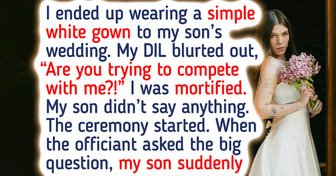
I Paid for My Ex to Visit Our Son—Then Learned the Real Reason She Came
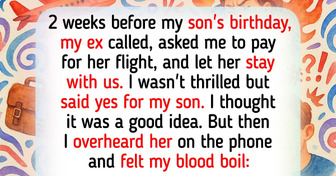
I Absolutely Refuse to Give Up My Apartment for My Sister and Her 3 Kids
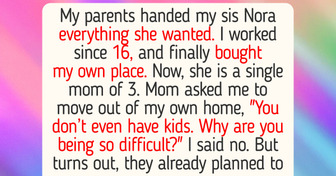
14 People Who Just Went With the Flow and Ended Up With a Story Worth Telling
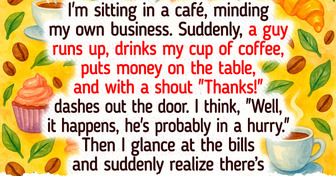
I Refuse to Be Held Responsible for the Parents Who Abandoned Me
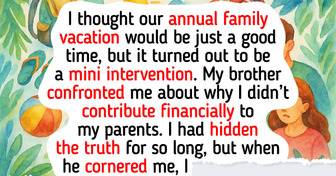
I Quit After My Boss Punished Me for Attending My Mom’s Surgery
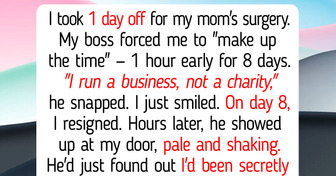
12 Times Kindness Stopped Damage From Becoming Destiny
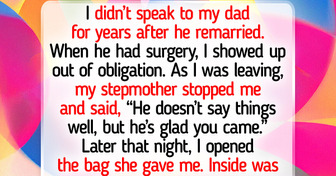
I Refuse to Help My Parents Who Abandoned Me at 18
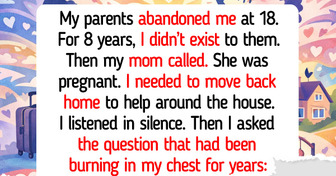
10 Stepchildren Who Opened Their Hearts to Love Again
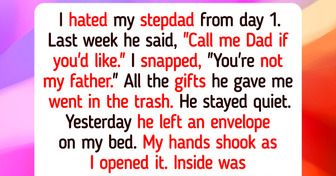
My MIL Demanded Rent for a House That Isn’t Hers, I Turned the Tables

16 Stories That Prove a Dad’s Love Is the Most Powerful Magic in the World
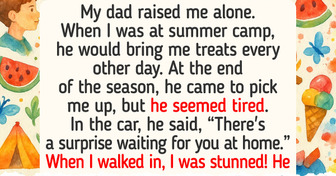
I Refused to Be the Fall Guy After My Boss Called Me "Useless"—I Had Him Reassigned and Took His Clients
